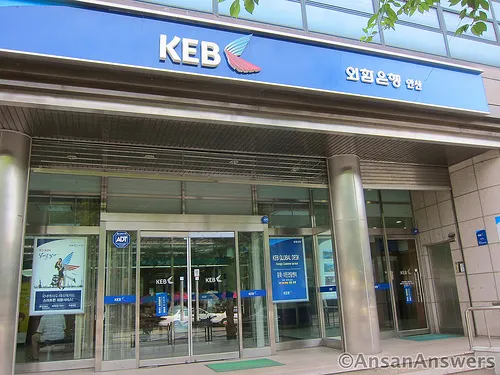
Korea Exchange Bank’s outlook stable, says Fitch
As it holds 6% of the system's total assets and facilitates 30% of the nation's trade finance.
Fitch Ratings has affirmed Korea-based Korea Exchange Bank's Long-Term Foreign Currency Issuer Default Rating at 'A-' with Stable Outlook and Support Rating Floor at 'A-'.
Here’s more from Fitch:
| The affirmation of KEB's IDRs reflects Fitch's continued belief of an extremely high propensity for support from South Korean government ('A+'/Positive), if needed. Fitch views that KEB is systematically important not only as one of the main commercial banks in South Korea but also as a key player in trade finance and foreign currency settlement. KEB holds 6% of the system's total assets and facilitates 30% of the nation's trade finance. KEB's 'bbb+' Viability Rating is underpinned by its strong capitalization and solid franchise, especially in providing trade finance and foreign exchange services to importers, exporters, and retail customers. However, it also reflects concentration risks in large corporate loans and the lack of a long-term strategy due to litigation issues and the exit plan of its 51.02% shareholder, Lone Star Fund, a US-based private equity fund, to sell its stake to Hana Financial Group. The rating has been affirmed as Fitch would not expect the sale to HFG to lead to any material weakening of its financial profile in the medium term (such as from higher dividend payments). KEB's loan quality was sound with a non-performing loan ratio of 1.3% and provision coverage ratio (inclusive of loan loss reserves booked in retained earnings) of 137% at end-Q311. Fitch also notes that its precautionary-and-below loans fell to 2.8% of total loans at end-Q311 from a peak of 3.3% at end-Q111. However, KEB's concentration risk, driven by a sizable exposure to large corporates including Hynix (37% of KEB's total loans versus 26% for the system), is the primary risk. KEB's profitability outperformed the system average due to realized gains from the sale of equity securities, most of which the bank acquired through debt-to-equity swaps during/after the Asian crisis. Once KEB has disposed of its equity securities in Q112, KEB's profitability would become comparable with its peers. KEB's regulatory net interest margin in H111 was 2.7% compared with 2.4% for the industry average. Like other Korean banks, KEB has negligible foreign currency retail deposits although foreign currency deposits from corporates is larger than its local peers. The loan-to-customer deposit ratio at end-H111 is estimated to be 118% and is not likely to see significant improvement. Capitalization is strong with a Tier 1 ratio of 11.6% at end-Q311 under Basel II F-IRB approach for credit risk. Upside potential for KEB's IDRs is limited given its Support Rating Floor already factors in strong propensity to support. Unless Fitch anticipates either less propensity or ability for the sovereign to support the bank, no change in the support-driven IDR is expected. A significant improvement in its loan concentration risk and a strengthened and more diversified foreign currency retail deposit base may put upward pressure on KEB's VR. Downside risk for the VR may arise from a significant increase in credit costs, deterioration in profitability or weakening capitalisation. Currently, Fitch views such a prospect as remote.
|




![Lorem Ipsum [ABF 1]](https://cmg-qa.s3.ap-southeast-1.amazonaws.com/s3fs-public/styles/exclusive_featured_article/public/2025-03/a_hand_pointing_to_a_futuristic_technology_5b87c9d0e3_1.png.webp?itok=2w0y1WhS)


![Cross Domain [Manu + SBR + ABF + ABR + FMCG + HBR + ]](https://cmg-qa.s3.ap-southeast-1.amazonaws.com/s3fs-public/styles/exclusive_featured_article/public/2025-01/earth-3537401_1920_4.jpg.webp?itok=WaRpTJwE)







 Advertise
Advertise

